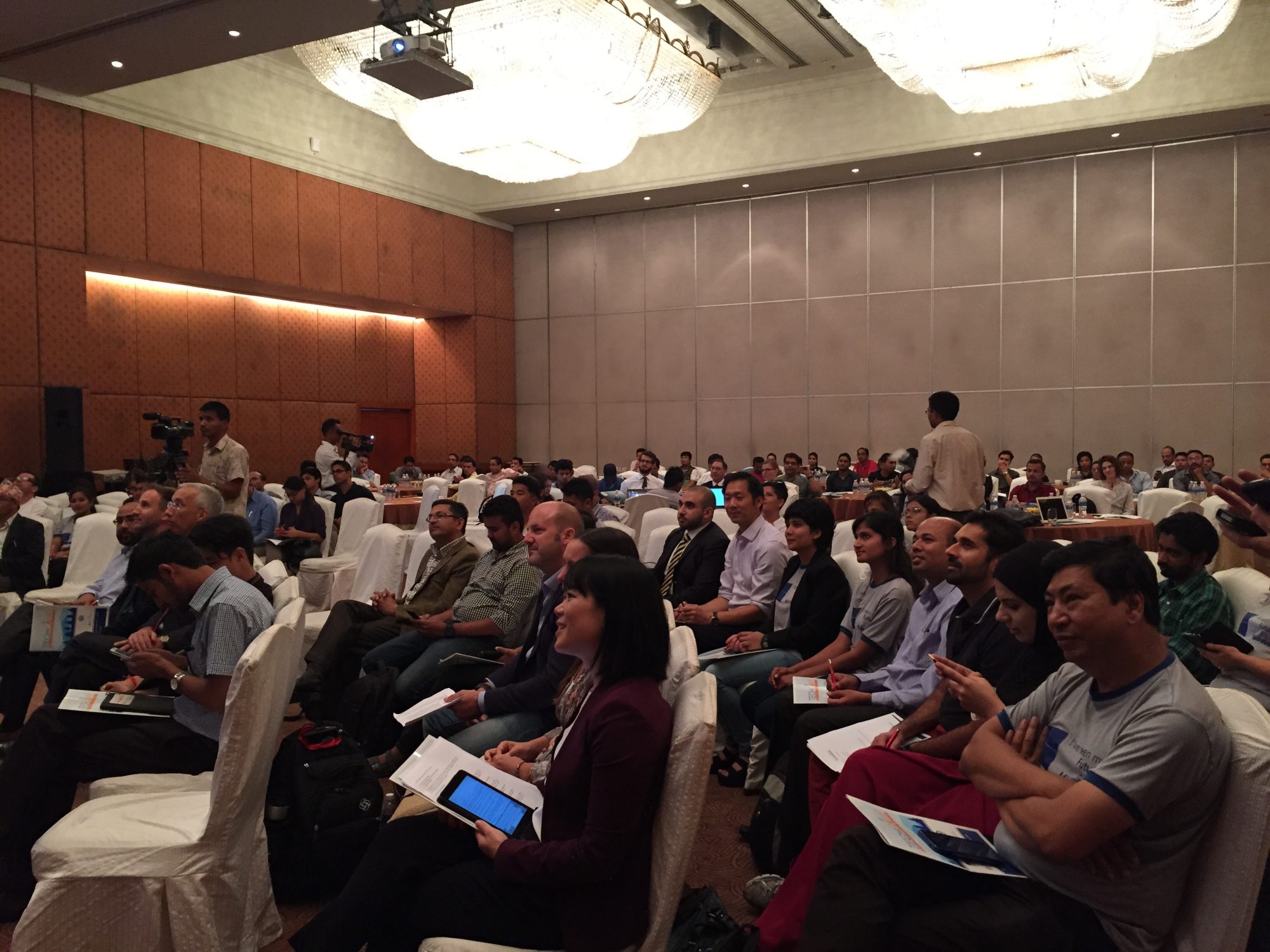
Kathmandu, Nepal—Responding to risks faced by Nepali migrant workers, Humanity United, in partnership with the U.S. Department of State, will host TechCamp Nepal in Kathmandu beginning September 1, 2015. The three-day event will seek practical and impactful technology solutions to better protect Nepali migrants who work or aspire to work abroad and bring together local and international technology experts, businesses and entrepreneurs, civil society groups, and government representatives from the U.S., Nepal, and Qatar.
Migration touches almost every Nepali: officially, more than two million Nepali citizens currently work abroad, and remittances made up almost 29% of Nepal’s economy in 2013. Despite the prevalence of Nepalis working abroad, the migration industry still leaves many workers deeply indebted and vulnerable to poor working and living conditions, unpaid wages, and even forced labor and human trafficking.
“The way the migration industry in Nepal is currently set up, middlemen reap massive benefits, while the workers themselves are rarely protected from exploitation. Right now, workers often don’t have access to reliable information about their future employment, their salaries, or even the jobs themselves,” said Catherine Chen, who leads the initiative at Humanity United. “To solve this, we need collaboration between workers, businesses, civil society groups and governments.”
With participation from global technology companies including Facebook and Microsoft, construction industry leader CH2M, Qatari agencies including the Qatar Foundation and the Supreme Committee for Delivery and Legacy—the organization responsible for delivering the stadiums and tournament infrastructure for the 2022 FIFA World Cup Qatar™, Nepali technology entrepreneurs, and migrant workers and the organizations that support them, TechCamp Nepal will be a space to collaborate and quickly test potential tech solutions that strengthen protection and reduce exploitation of Nepali workers. Following TechCamp, Humanity United hopes to support the development of the most promising ideas into working solutions and services.
“Migration brings with it many old problems, but technology can offer new solutions. Technology solutions have the power to disseminate information widely, to help document fees, and to serve up new channels of accountability. Even simply knowing the basics of their employment will help workers better protect themselves. The key is to harness technology in practical, accessible ways to serve Nepali migrants at home and where they work,” said Chen.
In advance of TechCamp Nepal, Humanity United hosted a five-day migration learning tour across Nepal for a smaller group of technology developers, designers and Nepali entrepreneurs to learn more about migration. Traveling to three different districts, participants explored in detail the process aspiring migrants use to seek out information and opportunities, arrangements they make with agents and brokers for employment, and the remittances workers send home to their families.
###
Notes
Media are invited to attend opening and closing of TechCamp Nepal, which will begin promptly at 900 AM on September 1 and 3, 2015.
For further information or to arrange interviews, please contact:
In Nepal:
Catherine Chen at cchen@hum-migration.test or +977 9818996801
Global/Washington, DC:
Liz Baker at lbaker@hum-migration.test or +1 202 503 3221